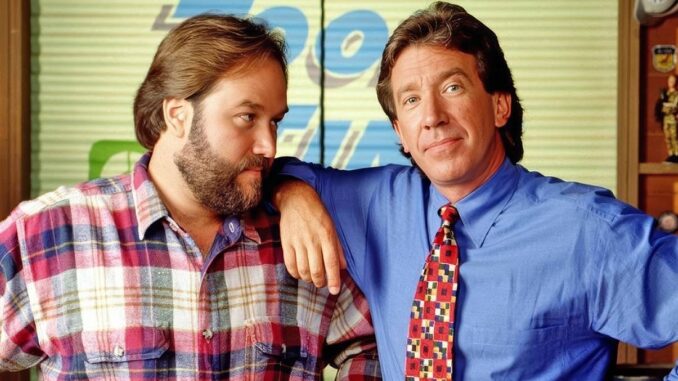
The Grunt and the Ghost: Tim Allen Shifts Gears Towards Deeper Reflections
Tim Allen, a figure etched into the collective consciousness with the grunts of a Tool Man and the twinkle of a Christmas Elf, has long mastered the art of comedic comfort. His career, built on a foundation of relatable family dynamics and the joyful chaos of DIY, seems almost synonymous with a certain brand of American optimism. Yet, a recent first look at Season 2 of his new series, Shifting Gears, reveals Allen grappling with a theme far more profound than a faulty carburetor: loss. This pivot, especially against the backdrop of an impending Home Improvement reunion, illustrates a compelling evolution, inviting audiences to witness the familiar face of comedy contend with the universal shadow of impermanence.
The title Shifting Gears itself takes on a layered meaning when viewed through this new lens. It’s not just about the literal mechanics of an auto shop, nor solely the career move of an actor. It speaks to the deeper, more human process of adaptation, of navigating life’s inevitable transitions. For Allen, a man whose public persona has often been that of the unshakable, can-fix-anything patriarch, acknowledging loss is a significant shift. It suggests a willingness to explore the vulnerabilities that lie beneath the boisterous exterior, hinting at a series that, while likely maintaining its comedic core, won’t shy away from the quieter, more reflective moments that define the human experience.
The profound resonance of Allen’s reflections is amplified by the looming Home Improvement reunion. This isn’t just a trip down memory lane; it’s a confrontation with the passage of time. For millions, Home Improvement was a weekly ritual, a comforting balm of power tools, family squabbles, and the enigmatic wisdom of a neighbor seen only from the nose up. A reunion, by its very nature, demands a reckoning with what was and what is. And in that reckoning, loss inevitably surfaces. The most poignant absence, of course, is that of Earl Hindman, the actor who played the wise, fence-obscured Wilson W. Wilson Jr. Hindman’s passing leaves an irreplaceable void, transforming what could be a purely nostalgic exercise into a bittersweet homage.
Imagine the set, familiar yet subtly altered by the years. The iconic fence, a symbol of boundaries and friendly connection, now carries an unspoken weight. The absence of Wilson’s disembodied advice isn’t just a plot point; it’s a palpable ghost in the machine, a reminder that some gears, once shifted, can never fully return to their original position. Allen, reprising his role as Tim “The Tool Man” Taylor, will undoubtedly bring his signature comedic timing, but his recent reflections suggest a deeper vein of emotion will run beneath the surface. His performance will likely be informed by not just the character’s journey, but his own, as he navigates the bittersweet joy of reconnecting with old friends while acknowledging those who are no longer there to share the moment.
This isn’t merely a celebrity discussing personal grief; it’s an artist using his craft to process and communicate a universal truth. By allowing loss to inform his work, Allen elevates Shifting Gears beyond simple situational comedy. He transforms it into a vehicle for contemplation, a subtle exploration of how we carry our pasts – the joys and the sorrows – into our present and future. The loud grunts of the Tool Man, once symbols of confident masculinity, might now be tinged with the quiet hum of introspection, revealing a man who, while still capable of fixing a broken engine, is also learning to mend the quieter breaks in the human heart.
In essence, Tim Allen’s venture into Shifting Gears Season 2, particularly in light of the Home Improvement reunion, illustrates the enduring power of storytelling to reflect life’s complexities. It’s a testament to the idea that even the most established personas can evolve, that comedy can serve as a conduit for deeper emotional truths, and that revisiting the past, while a source of comfort, is also an act of confronting what has been irrevocably altered. Through his willingness to acknowledge the “ghosts” and the “grunts,” Allen invites us to shift our own gears, to look beyond the surface, and to appreciate the rich, multifaceted landscape of a life lived, replete with both laughter and the quiet wisdom gleaned from loss.